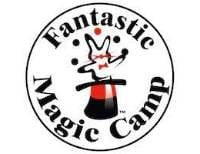No longer a young child, not quite a teen, a 10 year old is a “tween” who might be ready to take on more responsibilities, assume weekly chores and perhaps be ready to stay home alone for a few minutes at a time. But to get there, you’ll need to start teaching him some skills leading up to the decade mark. What are the basic skills kids can learn before age 10? Here are some ideas…
1. Simple Household Tasks
If you’re busy, out of the house or under the weather, your child should be able to make herself a sandwich, pack a sack lunch for school and prepare a small meal in the microwave. It’s also good to teach your kids how to do laundry, run the dishwasher and clean up a spill.
2. Safety
Keeping our kids safe is a top priority for parents. At a young age, we begin to teach our kids how to cross the street, ride a bike safely and be aware of strangers. By 10, parents should take it a step further by teaching kids about internet safety and how to handle emergencies. “I want them to be safe mentally and physically,” says Lisa Parrish, mother of three. “They should know how to use the phone, procedures for being home alone or in emergencies, safe touch and that no means no.” Kids approaching age 10 should also know basic first aid and when to call 911.
3. Hygiene and Grooming
Ten year olds should understand the importance of good hygiene and how to care for their own body and hair. Frequent showers, proper face and hand washing, and wearing deodorant are good habits to get into as the changing hormones of the teen years approach.
4. Budgeting and Saving
Ten years old is a great time to introduce basic budgeting skills. Kids can learn to pick something out that they would like to purchase, research the cost and begin saving for it. This helps teach delayed gratification, the value of a dollar, the reward for hard work and how to budget and save for things they want. This skill will be necessary as they plan for larger purchases in adulthood.
5. Problem Solving
Children often look to the adults in their lives to solve problems. Rather than giving your child the answer, why not let him try to work it out himself? Problem–solving skills learned early will benefit him as he grows older. Present your child with different scenarios and ask him what he would do. Ask your child, “If you get lost, what should you do? What if you leave your lunch at home? What if you see another child getting teased? If there’s a fire in the house, what should you do?”
6. Work Ethic
Kids need to know the value of hard work, especially as they head off to college or into the workplace. But even middle and high school require a higher level of study habits. To prepare your child for the workforce, assign chores that work toward a family goal, like putting in a garden for everyone to enjoy, or saving up allowance to work towards something they’d like to purchase.
7. Etiquette and Speaking Skills
Ten year olds should know how to treat other people respectfully, approach adults in public, have proper phone etiquette, know how to shake hands and express gratitude when someone gives them a gift or does something for them. With so much electronic communication, we need to teach our children that face to face conversations require proper language, rather than text speak. “Kids this age should know the Golden Rule and treat others the way they’d like to be treated,” says Laura Fenner, mother of four.
8. Caring for Others
Kids learn a lot when given the responsibility of taking care of something or someone else. Examples could be a pet, garden or plants, or helping with younger children. This helps teach them responsibility and selflessness.
9. Outdoor Skills
Kids this age can be taught outdoor safety. Fire safety, how to use a map and compass, what poison ivy looks like and water safety are all good examples. Teaching them these skills encourages them to find outdoor activities they enjoy. As we face competition with the screen, teaching kids how to be safe outdoors may foster a love of nature they’ve not yet experienced.
10. Healthy Habits
The importance of a healthy diet and routine exercise is never too early to learn. While they may not be preparing entire meals at age 10, children do need to know that potato chips don’t make a well–balanced lunch. Kids should be able to listen to their bodies so they can tell you if they’re unwell and what is wrong. Healthy sleep habits and a good diet can help them perform better in school and improve their moods. Kids should also be able to manage their emotions and calm themselves when needed.
These skills are a guideline, as every child and every family is unique. You may find that in your family, you value certain skills over others or that some of these were learned some time ago. “Be flexible with your plan to teach life skills,” says Krystal Laws, mother of seven. “Everyone learns at a different pace.”
Sarah Lyons is a freelance writer and mother of six.

















